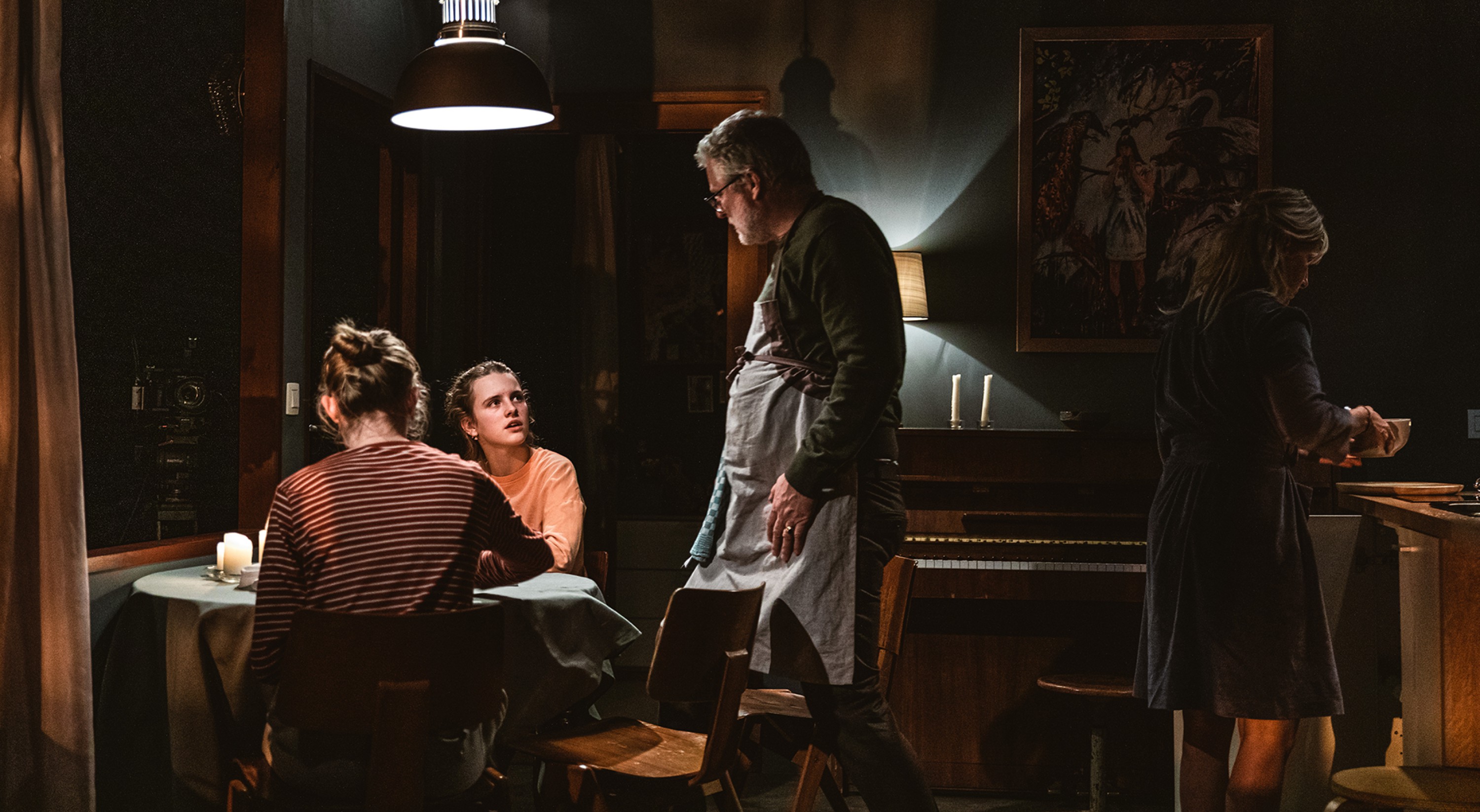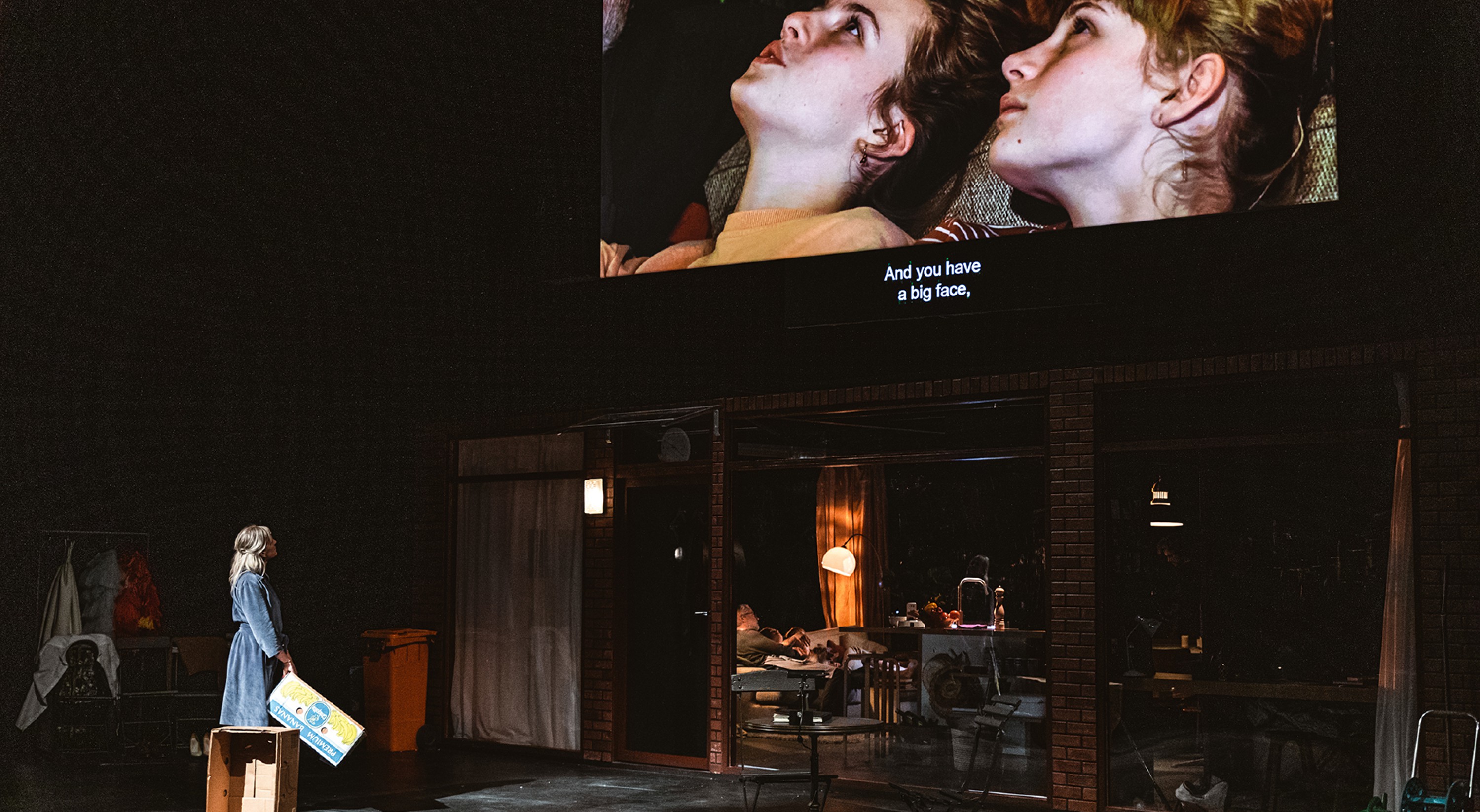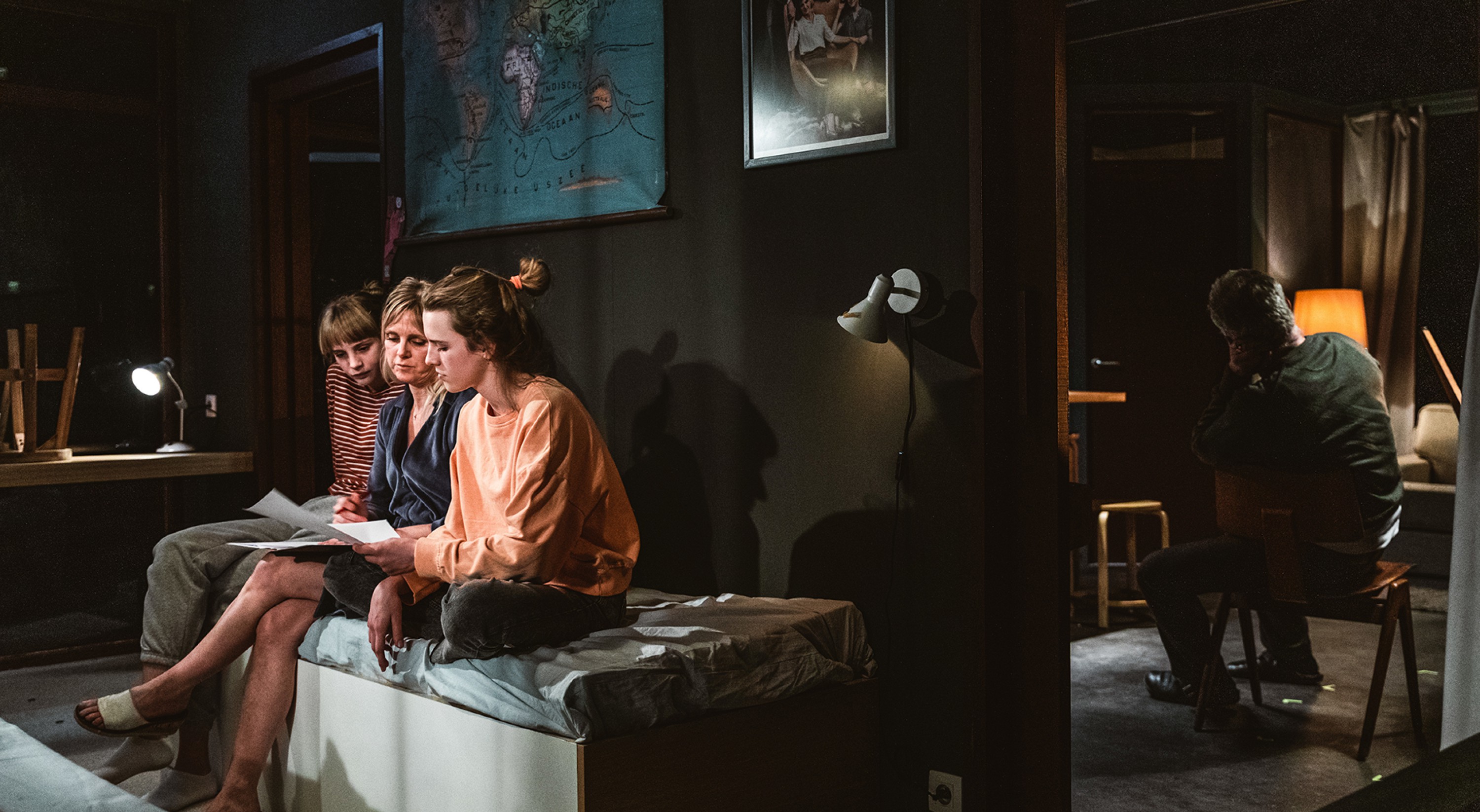Milo Rau
Familie
octoberoct 3 – 10
Concept and direction by Milo Rau
With An Miller, Filip Peeters, Leonce Peeters, and Louisa Peeters
Text, Milo Rau and the performers
Dramaturgy, Carmen Hornbtel
Decors, Anton Lukas
Costumes, Anton Lukas, and Louisa Peeters
Video, Moritz von Dungern
Musical arrangements, Saskia Venegas Aernouts
Lighting, Dennis Diels
Coach, Peter Seynaeve
Assistant director, Liesbeth Standaert
Dramaturgical assistant, Eline Banken
Production, Els Jacxsens
Technical production and management, Chris Vanneste
Set construction, Thierry Dhondt, Luc Goedertier, Flup Beys, Joris Soenen, Pierre Keulemans, Bart Stalmans, and Ramon Blancquaert
Costume design, An De Mol, Mieke Vander Cruyssen, and Café Costume
Technicians, Sander Michiels, Frederik Vanslembrouck, Raf Willems, and a.o.
Subtitles, Eline Banken, and Liesbeth Standaert
With thanks to Café Costume, Stuntteam de Beukelaer, Marie Goudeseune, Cédric Cerbana, Luk Poppe, Leen Bollaert, Moira Verhofstadt, and Ghent Marriott Hotel
Produced by NTGent
Coproduced by Romaeuropa Festival ; Künstlerhaus Mousonturm (Francfort) ; Schauspiel Stuttgart ; Théâtre de Liège ; and Scène Nationale d’Albi
In association with Nanterre-Amandiers, centre dramatique national ; and Festival d’Automne à Paris
In 2007, the four members of a family from the north of France were found dead at home after hanging themselves, with no explanation. Milo Rau brings to the stage an actor couple and their two daughters in order to replay the end of just another ordinary day in family life, prior to the fatal act.
The drama has no explanation. Neighbours and friends described them as discreet and always willing to help out. Found hanging on the veranda, the house had been tidied up, the remains of a dinner consisting of shellfish were visible and instructions had been left for looking after the dog. They had also written a somewhat brief, laconic note that read “We went a bit too far, sorry”.
At the invitation of Milo Rau, two reputed Belgian actors, An Miller and Filip Peeters, carried out their own enquiries with neighbours of this French family, and then looked into their own story. We see them onstage with their two adolescent daughters and two dogs, and provide us with a representation of ordinary family life which could easily be their own. The stories of the two families become interwoven, to the extent that fiction ends up playing upon reality, until the final, muted outcome. Portrayed in a realist way, this run-of-the-mill evening in family life is likened to an ethnographical enquiry into everyday contemporary life, in which the family is a social hub that structures the lives of its members. Milo Rau pursues his practice of the distancing, via theatrical representation, of the banality of violence in a Europe which has grown numb. In the face of this tragic silence, and of this theatrical allegory of a Western society struggling for breath and without destiny, a question rings out: what are we waiting for?
––––––
The show is not suitable for people under 16 years of age.


